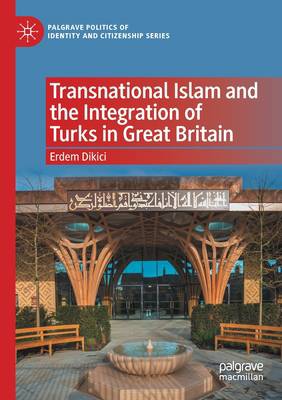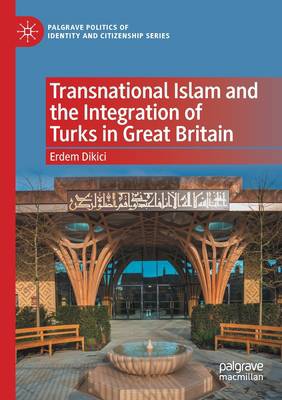
Bedankt voor het vertrouwen het afgelopen jaar! Om jou te bedanken bieden we GRATIS verzending (in België) aan op alles gedurende de hele maand januari.
- Afhalen na 1 uur in een winkel met voorraad
- Gratis thuislevering in België vanaf € 30
- Ruim aanbod met 7 miljoen producten
Bedankt voor het vertrouwen het afgelopen jaar! Om jou te bedanken bieden we GRATIS verzending (in België) aan op alles gedurende de hele maand januari.
- Afhalen na 1 uur in een winkel met voorraad
- Gratis thuislevering in België vanaf € 30
- Ruim aanbod met 7 miljoen producten
Zoeken
Transnational Islam and the Integration of Turks in Great Britain
Erdem Dikici
€ 198,45
+ 396 punten
Uitvoering
Omschrijving
This book brings a transnational perspective to the study of immigrant integration in contemporary Western European societies, with a specific focus on transnational Turkish Islam and Turkish integration in Great Britain. It raises significant questions regarding national citizenship models, and offers original insights into the ways in which they can be extended and renewed to cover the cross-border reality.
At the theoretical level, Dikici argues that the idea of multiculturalism can be extended to cover immigrant transnationalism without jeopardising its core principles such as equality and recognition of difference, and promises such as a shared national identity and unity in diversity. At the empirical level, the book illustrates that not all transnational Muslim organisations are the same (i.e. militant), and nor do they all hinder Muslim integration, rather they are diverse, with some deliberately contributing to the integration of Muslims into non-Muslimmajority societies.
The work will be of interest to scholars and students of contemporary integration and citizenship studies, multiculturalism studies, Muslim integration in Western societies, transnationalism and transnational Islam, Civil Society and Diaspora Studies.
At the theoretical level, Dikici argues that the idea of multiculturalism can be extended to cover immigrant transnationalism without jeopardising its core principles such as equality and recognition of difference, and promises such as a shared national identity and unity in diversity. At the empirical level, the book illustrates that not all transnational Muslim organisations are the same (i.e. militant), and nor do they all hinder Muslim integration, rather they are diverse, with some deliberately contributing to the integration of Muslims into non-Muslimmajority societies.
The work will be of interest to scholars and students of contemporary integration and citizenship studies, multiculturalism studies, Muslim integration in Western societies, transnationalism and transnational Islam, Civil Society and Diaspora Studies.
Specificaties
Betrokkenen
- Auteur(s):
- Uitgeverij:
Inhoud
- Aantal bladzijden:
- 279
- Taal:
- Engels
- Reeks:
Eigenschappen
- Productcode (EAN):
- 9783030740085
- Verschijningsdatum:
- 8/10/2022
- Uitvoering:
- Paperback
- Formaat:
- Trade paperback (VS)
- Afmetingen:
- 148 mm x 210 mm
- Gewicht:
- 353 g

Alleen bij Standaard Boekhandel
+ 396 punten op je klantenkaart van Standaard Boekhandel
Beoordelingen
We publiceren alleen reviews die voldoen aan de voorwaarden voor reviews. Bekijk onze voorwaarden voor reviews.









